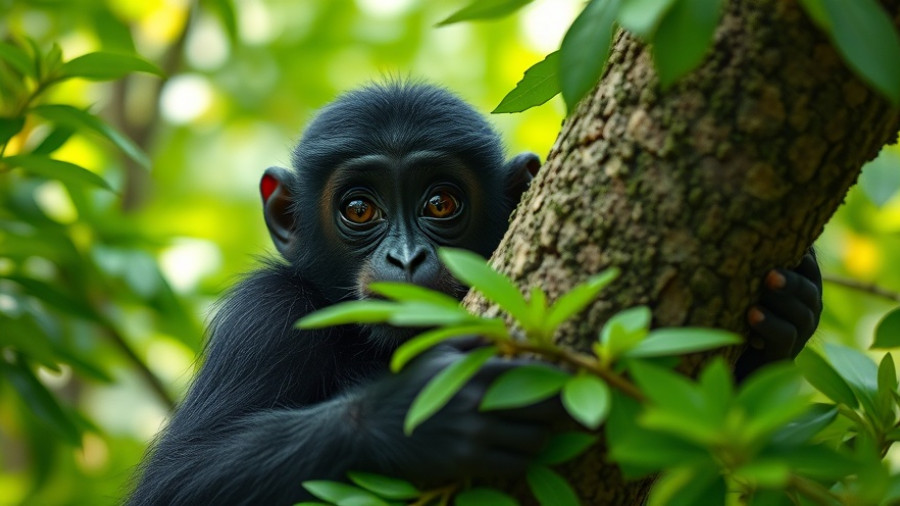
Understanding Bonobos: The Peaceful Apes of the Congo
Deep within the verdant foliage of the Kokolopori forest in the Democratic Republic of Congo, a rare and intriguing lifestyle unfolds among bonobos, often termed the ‘hippy apes.’ Unlike their more aggressive cousins, chimpanzees, bonobos possess a unique social structure predominated by females, characterized by empathy, cooperation, and reduced aggression. As daytime breaks, flashes of playful silhouettes emerge from intricate nests, each bonobo engages in the daily rituals of yawning, stretching, and greeting one another—painted with the warm glow of the rising sun. This captivating image invites one to reflect deeply on the extraordinary lives of these primates and the urgent need for their conservation.
Why Bonobos Matter
Bonobos share approximately 98.7% of their DNA with humans, marking them as our closest living relatives. This genetic kinship compels us to care about their survival not only because of the biological link but also due to the socio-cultural insights they offer. Their social dynamics, which include resolving conflicts through sexual interactions rather than aggression, challenge traditional notions about animal behavior and society. As noted by American conservationist Sally Coxe, their ability to combine vocalizations in complex manners—akin to human language structures—positions bonobos as key to understanding communication’s evolutionary roots. In a world grappling with social issues, these peaceful primates promote a valuable message about collaboration and coexistence.
The Challenges of Conservation
Despite their ecological significance, bonobos face perilous threats primarily from human activities, including rampant poaching and devastating deforestation. An estimated 15,000 bonobos remain in the wild today, significantly down from previous figures due to the encroaching human population and illegal hunting for bushmeat. The dense rainforest, once teeming with life, is increasingly compromised by agriculture and logging, pushing these endearing creatures to the brink of extinction. Organizations like the Bonobo Conservation Initiative (BCI) tackle these issues head-on, working collaboratively with Congolese communities to develop sustainable solutions that prioritize both the welfare of the bonobos and their human counterparts.
Empowering Local Communities for Conservation
To foster a culture of conservation, it is imperative to empower local communities who share the habitat with bonobos. BCI’s approach integrates education and economic incentives seeking to dismantle the cycle of poverty that exacerbates poaching and habitat destruction. Initiatives that promote ecotourism play a vital role by offering significant alternatives for income while fostering a sense of stewardship among residents. The successful approach hinges on mutual respect and understanding between humans and nature, recognizing that the fates of both are intertwined.
What You Can Do to Help
As awareness of the plight of bonobos grows, so does the potential for change. Engaging with conservation organizations such as BCI can lead to impactful contributions that preserve these remarkable apes and their habitats. Support can come in many forms—donating, volunteering, or sharing knowledge with others can significantly influence conservation efforts. By advocating for these ‘hippy apes,’ individuals not only contribute to their survival but also extend a hand towards preserving our planet’s biodiversity. Together, we can ensure that the legacy of bonobos endures through thoughtful action and caring for our planet's ecosystems.
 Add Row
Add Row  Add
Add 




Write A Comment